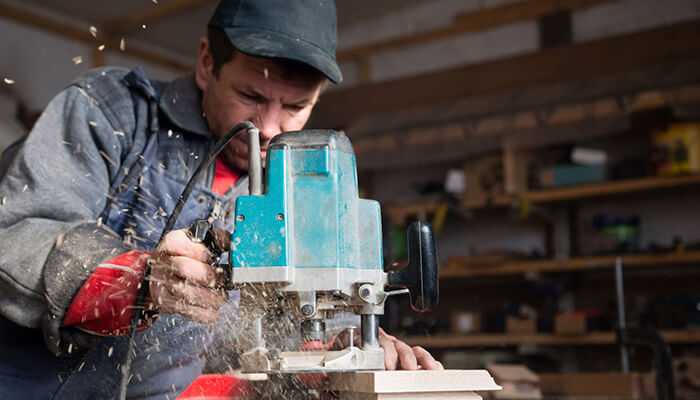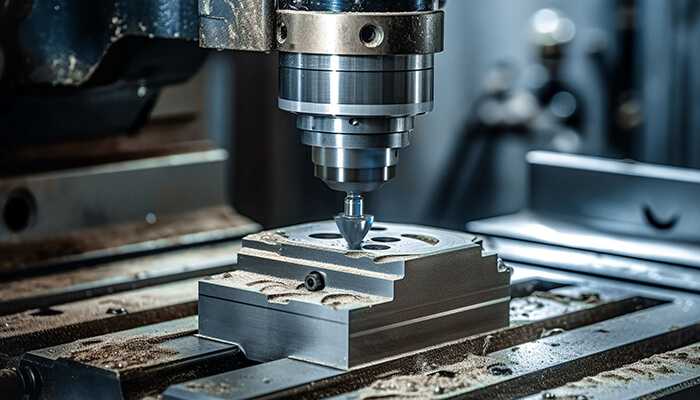In today’s ever-evolving industrial landscape, the realm of manufacturing has seen significant transformations, especially in the context of small scale manufacturing. Traditional manufacturing processes often invoke images of massive factories filled with towering machines, but the paradigm is shifting. Compact machinery is taking center stage, enabling small-scale manufacturers to thrive in a competitive market.
The milling machine stands as a prime example of this shift. While not typically considered ‘compact’ by traditional standards, modern advancements have made it significantly more manageable and cost-effective. But before you delve deeper into this versatile equipment, explore the broader landscape of small-scale manufacturing and its advantages.
The Small-Scale Advantage
Small-scale manufacturing, often called micro-manufacturing’ or ‘cottage industry,’ involves the production of goods on a smaller scale than traditional manufacturing facilities. These operations are typically characterised by their limited space, workforce, and production output.
However, their unique advantages make them attractive for many entrepreneurs and businesses.
1. Lower Initial Investment:
Unlike their larger counterparts, small-scale manufacturers can get started with a relatively modest initial investment, such as compact machinery. It is generally more affordable, and the overhead costs are significantly lower.
2. Flexibility:
Small-scale manufacturers have the flexibility to adapt quickly to changing market demands. They can shift production focus, introduce new products, and adjust processes without the bureaucratic challenges often faced by larger corporations.
3. Niche Markets:
Small scale manufacturing is well-suited for serving niche markets. Customization and specialization are easier to achieve, allowing businesses to cater to unique customer needs.
4. Reduced Risk:
With lower overhead costs and a more agile operation, small-scale manufacturers often face reduced financial risk compared to large-scale manufacturers. This makes them more resilient in challenging economic times.
As the business world evolves, the small-scale advantage remains a beacon for entrepreneurs seeking a flexible, innovative, and community-driven path to success.
Compact Machinery: The Heart Of Small-Scale Manufacturing
Now, follow up on the importance of compact machinery and how it plays a pivotal role in small scale manufacturing. Compact machinery is a game-changer for small-scale manufacturers for several reasons:
1. Cost-Effective
One of the standout advantages of compact machinery is its cost-effectiveness. These machines come with a more budget-friendly price tag compared to their larger industrial counterparts, reducing the financial barrier for small-scale manufacturers looking to invest in essential equipment.
2. Energy Efficiency
Compact machinery consumes less power than larger industrial equipment, contributing to significant cost savings over time. However, it’s important to note that power consumption can vary significantly depending on the specific type of equipment, its configuration, and how it is used.
This energy efficiency enables your business to operate more sustainably while maintaining profitability, a crucial consideration in today’s environmentally conscious business landscape.
3. Ease Of Operation
Modern compact machinery has user-friendly interfaces and automation features, making it accessible to a broader range of operators. While precision and versatility are maintained, these machines require a lower skill level to operate effectively.
This aspect simplifies the training process for personnel, reducing the learning curve and the time required to bring operators up to speed.
4. Space Efficiency
Unlike their larger counterparts, compact machines are designed to take up minimal floor space. This characteristic is crucial for small-scale manufacturers operating in confined environments or shared workspaces. This flexibility in space management empowers you to create adaptable work environments that maximize productivity without compromising essential manufacturing processes.
With these advantages in mind, you can confidently navigate the evolving industrial landscape, carve out your niche, and make meaningful contributions to the dynamic manufacturing world.
Applications Of Compact Machinery In Small Scale Manufacturing
The applications of compact machinery in small scale manufacturing are diverse and can be found in various industries.
1. Prototyping and Product Development:
Small-scale manufacturers often use compact machinery to create prototypes and test new product designs before scaling up production.
2. Medical Devices:
In the medical device industry, precision is paramount. Compact machinery is vital in producing intricate components for devices such as prosthetics and dental implants.
3. Aerospace:
Even in the aerospace industry, where precision and reliability are critical, small-scale manufacturers are finding their niche. Compact machinery is used to manufacture specialized components for aircraft and spacecraft.
4. Electronics:
As the demand for miniaturization grows in the electronics industry, compact machinery is instrumental in producing small, intricate parts for various electronic devices.
5. Tool and die making:
Small-scale manufacturers producing tools and dies rely on compact machinery to create the essential components that shape other products in different industries.
Compact machinery’s adaptability and efficiency remain essential in shaping the future of small-scale manufacturing, contributing to its growth and success.
Challenges And Considerations
While the adoption of compact machinery in small-scale manufacturing brings numerous benefits, it’s essential to be aware of potential challenges:
1. Skill Requirements:
Skilled operators must operate compact machinery despite its user-friendly interfaces. Training and skill development are crucial for achieving optimal results.
2. Maintenance:
Regular maintenance is essential to keep these machines running smoothly. Neglecting it can lead to costly downtime.
3. Production Capacity:
Compact machinery has a limited production capacity compared to larger machines. Small-scale manufacturers must carefully plan production schedules to meet demand.
4. Upfront Cost:
While more affordable than their larger counterparts, compact machinery still represents a significant investment. Small-scale manufacturers need to budget accordingly.
5. Market Competition:
As the popularity of small scale manufacturing grows, competition within niche markets can become fierce. Businesses must differentiate themselves to thrive.
Navigating these challenges while capitalizing on the benefits of compact machinery is essential for your small-scale manufacturing enterprise’s sustained growth and success.
Conclusion
Small-scale manufacturing is no longer confined to the shadows of industrial giants. Compact machinery has empowered small-scale manufacturers to take on diverse industries, serving niche markets and responding swiftly to changing demands.
The advantages of lower initial investment, flexibility, and reduced risk, combined with the precision and efficiency of modern compact machinery, make this a compelling avenue for entrepreneurial endeavors. As technology continues to advance, the future of small-scale manufacturing looks brighter than ever, with compact machinery at its heart, driving innovation and growth in this dynamic sector.



